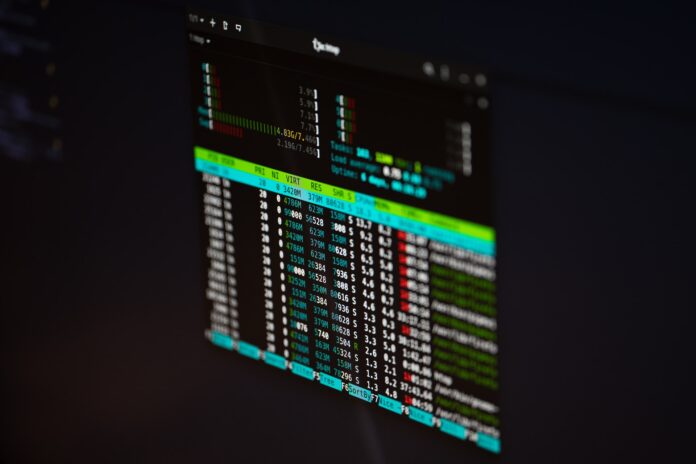
Welcome to a journey of discovery where understanding my IP address isn’t only a technical need but also a first step toward safer, smarter internet usage. As we navigate an increasingly digital world, your Linux IP address becomes more than just a string of numbers; it’s a key that unlocks the door to a secure and knowledgeable online experience. This article aims to demystify Linux IP addresses so that you may understand what they are and how important they are to your everyday online activity. We will explain the basic concepts of Linux IP addresses, how they impact your online behavior, and provide practical advice on how to take full use of this knowledge. Understanding your Linux IP address is essential for ethical and informed internet use, no matter how tech-savvy you are. Let’s go on this informative journey together to the part of internet use where security and clarity coexist.
Decoding the IP Address
Have you ever stopped to think about the meaning behind the straightforward query, “What is my IP address?” The layers of IP addresses are revealed in this part, simplifying a complicated topic into an understandable manual.
What is a Linux IP Address?
In the digital realm, a Linux IP (Internet Protocol) address is fundamentally similar to your residential address. It’s a special number that has been allocated to your gadget that lets it connect and communicate with other devices online. Consider it the internet’s postal service: transmitting and receiving data online without a Linux IP address is like attempting to mail a letter without a home address.
Types of IP Addresses:
- Static IP Addresses:
- Definition: A constant, unchanging address.
- Benefits: Ideal for businesses for consistent online presence.
- Drawbacks: Can be more vulnerable to security threats.
- Dynamic IP Addresses:
- Definition: These change each time you connect to the internet.
- Benefits: Offers better security and is cost-effective for ISPs.
- Drawbacks: Less reliable for certain online activities, like hosting a website.
Why Knowing Your Linux IP Matters:
Knowing if your Linux IP address is static or dynamic can enable you to use the internet more wisely. For example, it might be vital to know that a static Linux IP address offers a reliable connection if you manage an internet-based firm. On the other hand, a dynamic Linux IP provides more protection and privacy for regular browsing.
Navigating IP Addresses in Daily Use:
- Check your IP address using simple online tools.
- Know when to opt for a static IP – are you hosting a website or a gaming server?
- Understand how dynamic IPs protect your privacy in daily browsing activities.
Your IP and Internet Security
Your IP address enters the realm of internet security and starts to play a crucial role. It acts as a potential point of entry for security threats as well as a digital identity. If you want to use the internet responsibly, you must understand this aspect of your IP.
- The Security Aspect of Your Linux IP: Like a digital fingerprint, your Linux IP address is unique and traceable. Its visibility has two shortcomings. On the one hand, it ensures that you may communicate and access services over the internet. But it can also make you a target for cyberattacks. Using my IP, hackers could be able to launch attacks, invade your privacy, or even steal crucial data. This data highlights how important it is to know how vulnerable your intellectual property is and to take security measures to protect it.
The first line of defense in protecting your intellectual property is awareness: By being aware of the kind of your Linux IP address and regularly checking it, you may ascertain your degree of vulnerability. Protected networks, firewalls, and antivirus software may all be used to enhance further protection. For those who choose it, virtual private networks, or VPNs, provide an extra degree of anonymity. They make it harder for malicious actors to locate you or target your device by masking your Linux IP.
- Anonymity and privacy: In the age of data leaks and eavesdropping, safeguarding your online behavior is becoming more and more crucial. Your IP address becomes relevant at this point. It is not only necessary to access the internet, but it also leaves a trail that might be connected to you. Using solutions like VPNs makes it more difficult for other parties to trace your online activity by encrypting your data and hiding your IP address. This enhances your privacy and fortifies your defenses against potential cyberattacks.
Conclusion: Empowering Your Digital Journey with Linux IP Knowledge
My IP address is a crucial component of your online identification and is more than simply a series of numbers. By understanding its purpose and being able to defend it, you’re enhancing your online security and your internet experience. Gaining greater knowledge about Linux IP addresses may help you maximize your online experience, safeguard your privacy, and make informed decisions—whether you’re managing a digital business or simply performing casual browsing.
So, when you go on your online travels, remember how important your Linux IP address is. Utilize the knowledge you’ve been given to maximize your internet usage, remain secure, and stay informed. You can navigate the digital world with more assurance and intelligence now that you are aware of this.





